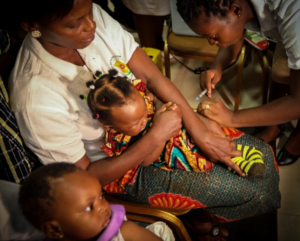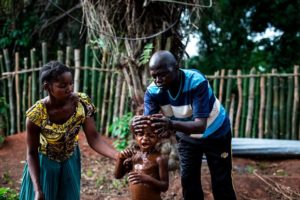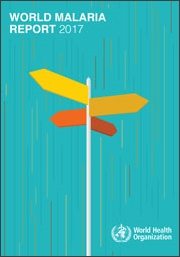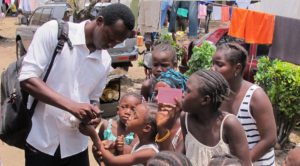Latest news on malaria and other infectious diseases will be posted here. Share with me if you know any as well!
2019
May 22, 2019
Algeria and Argentina certified malaria-free by WHO
Excerpt from article: “Algeria and Argentina have been officially recognized by WHO as malaria-free. The certification is granted when a country proves that it has interrupted indigenous transmission of the disease for at least 3 consecutive years.
Contracted through the bite of an infected mosquito, malaria remains one of the world’s leading killers, with an estimated 219 million cases and over 400 000 malaria-related deaths in 2017. Approximately 60% of fatalities are among children aged under 5 years.
Algeria is the second country in the WHO African Region to be officially recognized as malaria-free, after Mauritius, which was certified in 1973. Argentina is the second country in the WHO Region of the Americas to be certified in 45 years, after Paraguay in June 2018.
Algeria and Argentina reported their last cases of indigenous malaria in 2013 and 2010 respectively.
Link: https://www.who.int/news-room/detail/22-05-2019-algeria-and-argentina-certified-malaria-free-by-who”
April 30, 2019
Malaria vaccine pilot launched in Ghana
Excerpt from article: ”
WHO Ghana welcomed the Ministry of Health’s launch of the world’s first malaria vaccine in a landmark pilot programme. Top health officials, WHO representatives, community leaders, and mothers and children gathered on 30 April 2019 to officially begin the vaccine rollout. The country-led phased vaccine introduction is supported by WHO and national and global health partners.
Ghana is one of three African countries in which the vaccine, known as RTS,S, will be made available to children up to 2 years of age.
Malaria remains one of the world’s leading killers, claiming the life of one child every two minutes; most of these deaths are in Africa. In Ghana, about 20 percent of all children have malaria parasites in their blood.
“This is a day to celebrate,” said WHO Representative for Ghana Dr Owen Kaluwa. “This breakthrough in malaria control caps a 30-year effort to develop a vaccine with proven results to help prevent malaria in young children. The malaria vaccine has the potential to save tens of thousands of children’s lives.”
Dr Kaluwa congratulated the Ministry of Health of Ghana for its commitment to the RTS,S vaccine pilot and what it could mean to improve child health and malaria control.
A roster of distinguished speakers participated in the event, including the Director-General of the Ghana Health Service Dr Anthony Nsiah-Asare. Deputy Minister of Health the Honorable Alexander K. K. Abban gave keynote remarks and then officially announced the vaccine pilot underway.
Susana and Abigail, both age 6 months, were then vaccinated – the first children to receive the malaria vaccine in the Ghana pilot – in front of the attending audience of about 300 health workers, national immunization and malaria specialists and community supporters.”

Susana and Abigail, both 6 months, are the first to receive the RTS,S vaccine in Ghana. Photography credit: WHO/Fanjan Combrink
April 23, 2019
World’s First Malaria Vaccine Launches In Sub-Saharan Africa
“Today health officials are making history. They’re rolling out the first approved vaccine aimed at stopping a human parasite. It’s for malaria — and the hopes are that one day the vaccine could save the lives of tens of thousands of children each year.
“This [rollout] is a massive success of the research community,” says Dr. Pedro Alonso, who directs the Global Malaria Programme at the World Health Organization.
This vaccine — called RTS,S — is one of the few immunizations designed and launched specifically to help young children in Africa, says Deborah Atherly at PATH, a nonprofit that helped develop the immunization.
“It’s a pro-poor vaccine, if you will,” Atherly says. “I think that’s also a really important milestone in vaccine development and introduction.”
Malaria is still a top killer of children worldwide, but children in Africa are most affected. Every two minutes a child or baby there dies of the disease. Some children can have up to six bouts of malaria in just one year, says Dr. Mary Hamel of WHO.
The vaccine took more than 30 years — and more than $500 million — to develop. It was an international collaboration among WHO, PATH, the pharmaceutical company GlaxoSmithKline and a network of African countries. The Bill & Melinda Gates Foundation — which is a sponsor of NPR and this blog — is also a funder of the vaccine.”
Link: https://www.npr.org/sections/goatsandsoda/2019/04/23/716378835/worlds-first-malaria-vaccine-launches-in-sub-saharan-africa?utm_campaign=storyshare&utm_source=facebook.com&utm_medium=social
January 22, 2019
Quinine’s Target
“Different classes of malaria drugs have been used for decades, even though the mechanisms of action have never been elucidated. To identify antimalarial drug targets, Dziekan et al. developed a protocol combining mass spectrometry and cellular thermal shift assay. The assay uses parasite lysate and intact infected red blood cells and was able to positively identify two known drug targets. They then investigated targets for quinine and mefloquine, revealing purine nucleoside phosphorylase as the top hit. Their results not only identify the likely target of these common drugs but also showcase an assay that could be widely used in antimalarial drug research.”
Link: http://blogs.sciencemag.org/pipeline/archives/2019/01/22/quinines-target
http://stm.sciencemag.org/content/11/473/eaau3174
University of Florida, January 2, 2019
New saliva-based test detects malaria before symptoms appear
Link: http://news.ufl.edu/articles/2019/01/new-saliva-based-test-detects-malaria-before-symptoms-appear.php
Want to learn more about Malaria? Take an online course from Harvard University
MalariaX: Defeating Malaria from the Genes to the Globe
Link: https://www.edx.org/course/defeating-malaria-genes-to-globe
2018
MIM conference this year in Dakar, Senegal
There will be a symposium on Vivax malaria in Africa!
Annual Conference – American Society of Tropical Medicine and Hygiene
This year in New Orleans!
2017
The Guardian, Nov 29, 2017
World Malaria Report 2017 by WHO
http://www.who.int/malaria/publications/world-malaria-report-2017/en/
CDC – Global Health




